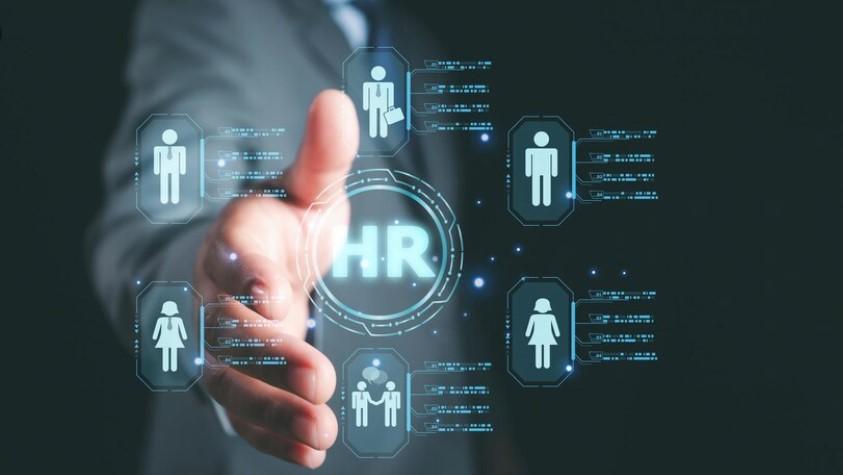Navigating the Future: Capterra Report Highlights Promise and Pitfalls of AI in HR

In today’s fast-evolving HR landscape, artificial intelligence (AI) is proving both a beacon of hope and a cause for concern. As companies grapple with economic uncertainty and a widening talent gap, many HR leaders are leaning into AI to transform operations and elevate employee experience.
According to Capterra’s 2025 HR Software Trends Survey, which gathered insights from over 3,200 HR professionals across 11 countries, the use of AI in HR is on the rise. However, challenges in training, integration, and risk evaluation continue to limit its full potential.
Rising Recruiting Costs Push HR Toward AI Adoption
Recruiting remains a key focus for HR leaders, with 44% citing the challenge of hiring skilled professionals and 59% expecting recruitment costs to climb. In response, many have turned to AI-powered recruitment platforms that streamline the hiring process from automating initial screenings to enhancing candidate matching.
Nearly 49% of companies using AI in HR software report improved recruiting outcomes. Yet, only 42% rank recruiting technology as a top initiative, highlighting a disconnect between AI’s proven benefits and its strategic prioritization. Organizations have an opportunity to reframe AI not just as a tool, but as a core enabler of talent acquisition success.
Training and Skills Gaps Stall Broader AI Implementation
While the promise of AI in HR is compelling, skills gaps and inadequate training remain major hurdles. 45% of HR leaders list workforce training as their top challenge, with 68% predicting increased training expenditures in the coming year.
Many companies manage a complex HR tech stack, averaging four tools in operation. As a result, software integration and new user onboarding are growing concerns. Nearly half (48%) of HR leaders cite onboarding new users as their biggest challenge, while 43% point to limited AI expertise as a barrier to full adoption.
Capterra’s analysis underscores the need for investments in learning management systems (LMS), talent analytics, and integrated platforms to address these operational challenges. Without upskilling their teams, organizations risk underutilizing their AI investments.
AI Boosts Employee Engagement and Retention
Despite fears that AI might diminish human connection, the data tells a different story. Among HR teams using AI-enabled solutions, 43% report higher employee satisfaction, and 39% see improved retention—a sharp contrast to 27% and 25%, respectively, among those without AI tools.
With 36% of HR leaders listing retention as a major challenge this year, AI presents a viable way to strengthen workforce engagement. Whether it’s through personalized learning journeys, real-time feedback, or intelligent scheduling, AI can deliver meaningful value in the employee experience lifecycle.
AI’s Promise Meets Risk and Uncertainty
While enthusiasm for AI in HR continues to grow, concerns about data quality, privacy, and internal readiness persist. 46% of HR professionals remain unsure about how to evaluate the risk and ROI of AI-related investments.
Security, in particular, is top of mind. 67% of HR decision-makers prioritize data protection when selecting HR software, and 43% say security concerns influenced their software purchases last year. These findings suggest a pressing need for clear AI governance policies, robust compliance measures, and company-wide AI literacy.
“Technology by itself won’t future-proof the workforce,” said Bruno Peláez, Senior Analyst at Capterra. “Companies must place people at the center of every AI decision, nurture internal AI skills, and design strategies that promote long-term engagement.”
Final Thoughts: Unlocking the Full Value of AI in HR
The Capterra report makes one thing clear: AI in HR is no longer a futuristic concept. It’s here, it’s growing, and it has the potential to transform the way companies attract, engage, and retain talent. Yet, to truly harness AI’s benefits, organizations must confront training gaps, foster internal capability building, and implement strong governance frameworks.
As HR leaders balance innovation with responsibility, the next few years will be critical in shaping a tech-enabled, people-first future.
Want to stay ahead in HR tech and innovation?
Visit HR Tech News for the latest updates on AI in HR, digital transformation, and the future of work.
- Art
- Causes
- Crafts
- Dance
- Drinks
- Film
- Fitness
- Food
- Jeux
- Gardening
- Health
- Domicile
- Literature
- Music
- Networking
- Autre
- Party
- Religion
- Shopping
- Sports
- Theater
- Wellness




